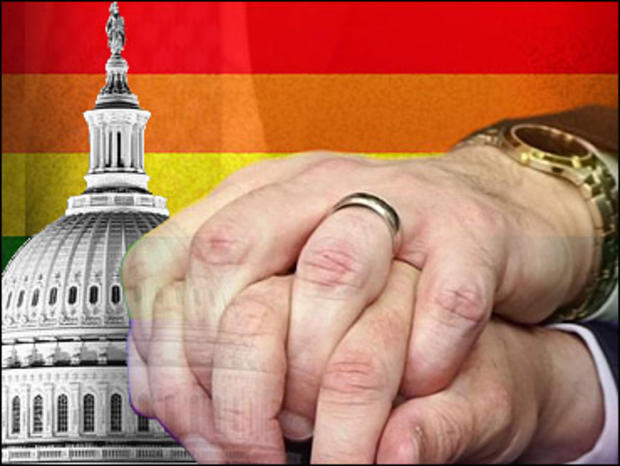The Gay Marriage Ruling: What Now?
Yesterday, a federal district judge in Boston declared that the federal ban on recognizing same-sex marriage - as articulated in the 1996 Defense of Marriage Act, or DOMA - is unconstitutional.
The judge, Joseph Tauro, based his decision on the notion that states, not the federal government, have jurisdiction over the definition of marriage. If his decision holds up through appeals - and that's a big if - it would mean that the federal government would likely have to recognize those same-sex marriages already recognized by states, and thus provide benefits like Medicaid to same-sex partners.
To be clear: The decision would not mean that both federal and state governments would have to recognize same-sex marriage nationwide. Instead, it would mandate that the federal government would have to recognize same-sex marriages already recognized by Massachusetts and other states that recognize gay marriage. (The case actually dealt with a specific group of people looking for specific benefits, but the broader implication is that the relevant section of DOMA would fall.)
The case now could move from the district court to the U.S. court of appeals for the first circuit, which includes three other New England states; it could then go to the Supreme Court. Ironically, an appeal to the decision would come from the Justice Department of the Obama administration, which wants to repeal DOMA but must defend it so long as it remains law.
This is not the only high-profile same-sex marriage case now before the courts: in California, both sides are now awaiting a decision in a major lawsuit to overturn the Proposition 8 same-sex marriage ban. That case (Perry v. Schwarzenegger) is predicated on the argument that the state's voter-backed ban of same-sex marriage violates the Constitution's due process and equal protection provisions.
If the plaintiffs are successful and the decision is sufficiently broad, that case would go further than the Massachusetts decision - it would essentially bring down both state and federal limits on same-sex marriage (and effectively make America a nation where all gay couples could get married). Like the Massachusetts decision, there is a decent chance that the California case will end up before the Supreme Court.
Robert George, a professor of jurisprudence at Princeton University as well as the chairman of the National Organization for Marriage, which works against same-sex marriage efforts, said in an interview with Hotsheet that he believes the Massachusetts decision was wrong. He cites examples in which the federal government recognizes marriage for various purposes, such as the filing of tax returns.
"I believe that the federal government does have the power to define marriage for purposes of federal law," he said - even if it doesn't have the power to define it for the purposes of state law.
George, founder of the American Principles Project, also suggests that the arguments in the two gay marriage cases essentially contradict each other. That's because, he argues, while the Massachusetts case is predicated on states' rights over federal rights, the California case is predicated on the reverse.
"It seems to, if you take the logic of the [Massachusetts] opinion, lead to the proposition that the Supreme Court or the federal judiciary would not have the power to, for example, overturn Proposition 8 in California, because that would constitute the federal government intervening on behalf of the state to define marriage," he said.
"So while there is lots of applauding of this decision by the advocates of same-sex marriage, the logic seems to undermine their position," he added.
But Jennifer Pizer, marriage project director of gay rights group Lambda Legal, says George has it wrong.
"Equal protection rules [in the Constitution] apply to both states and the federal government," she said in an interview. "The Boston litigation addresses Congress mistreating a group and Congress interfering with a state. The federal government statute has both of those problems. And Prop. 8 is about a state violating the rights of a group - one of those problems."
She added: "The basic idea here is that all government in the United States is required by the Constitution to treat people equally. And anti-gay marriage rules are not equal treatment. So if a state violates that principle, the state violates the Constitution. And if Congress violates that principle, Congress violates the Constitution."
"The decisions yesterday in the Boston cases reinforce the arguments made in the Prop. 8 litigation because defenders of these anti-gay rules in California and in the Boston litigation relied on some similar arguments," argued Pizer. "And so the conclusions in the Boston cases explain why those anti-gay arguments fail to justify marriage discrimination."
There is no clear timeline for when all this will be resolved - the Supreme Court has discretion over whether and when to take up either same-sex marriage case, and both cases could go away if Proposition 8 or DOMA are overturned by voters or Congress. One thing we do know: If the cases do reach the high court, they will likely yield landmark rulings that won't be forgotten anytime soon.
